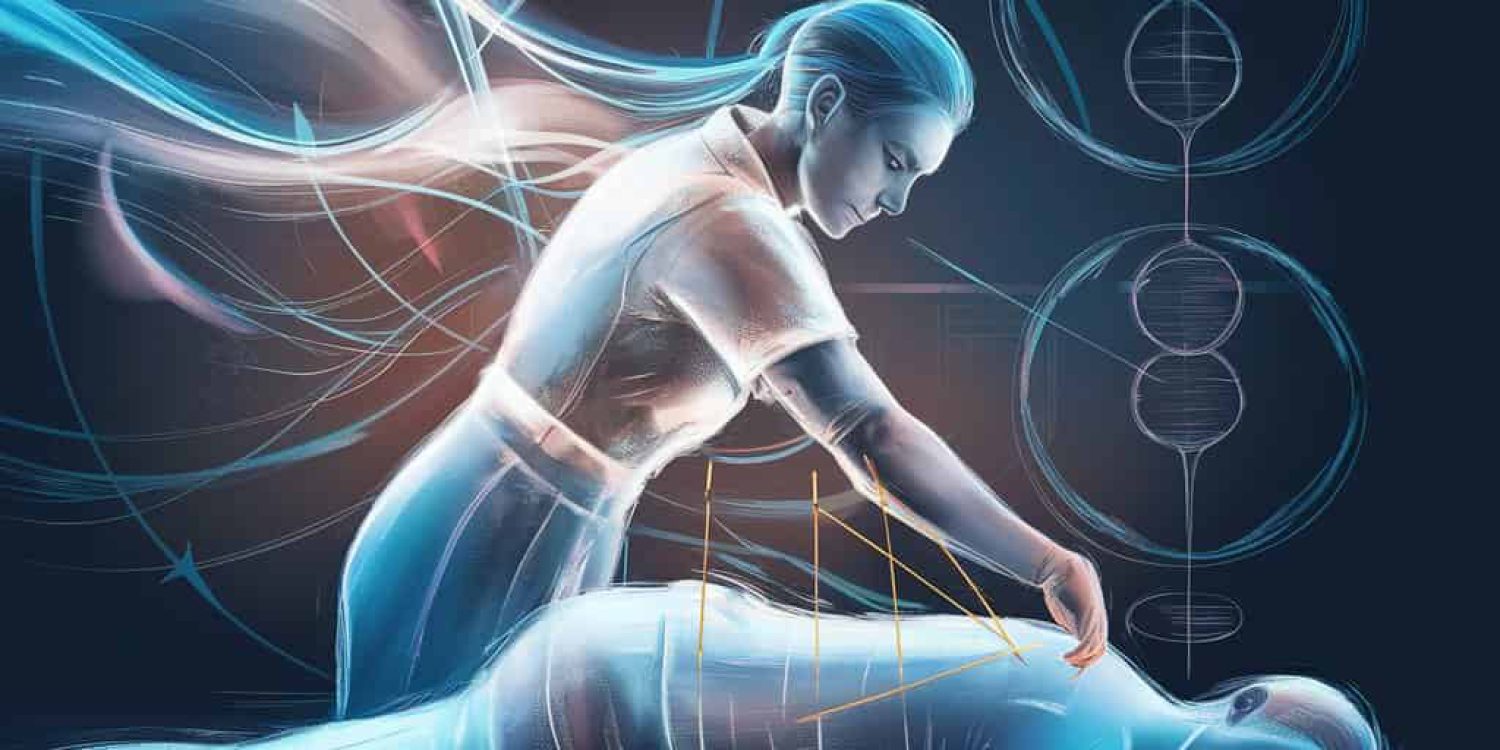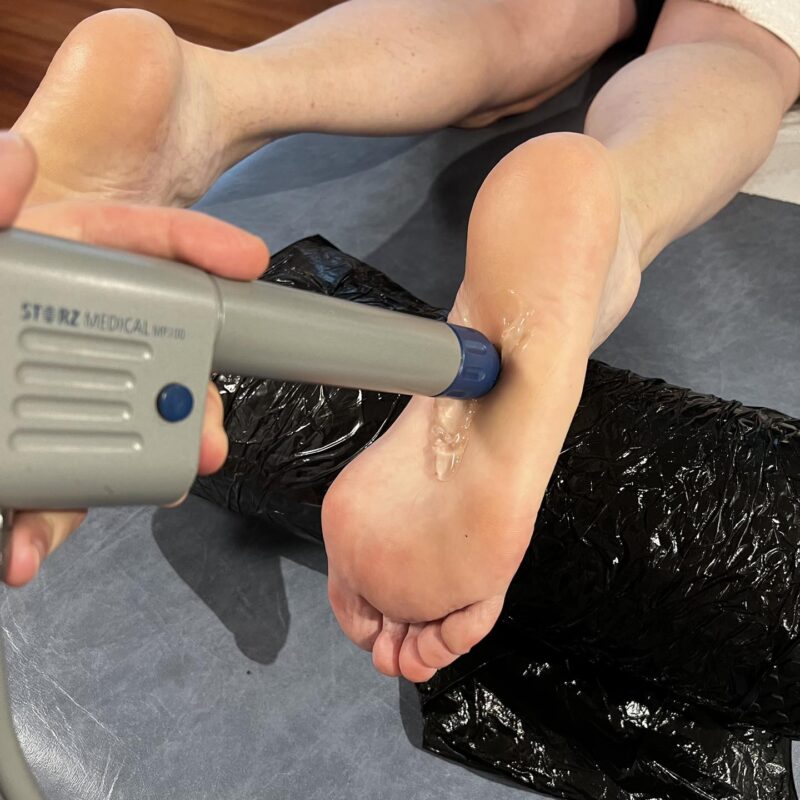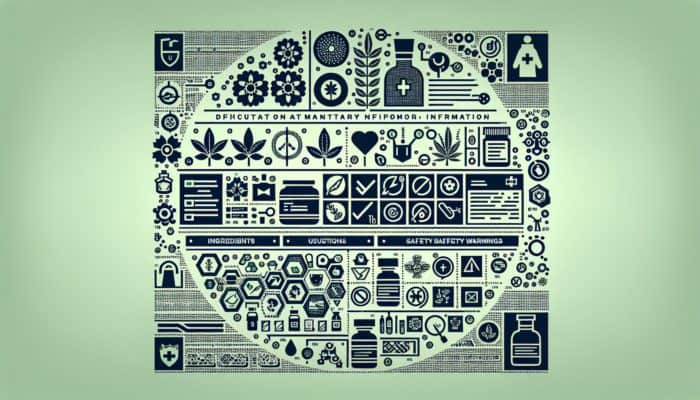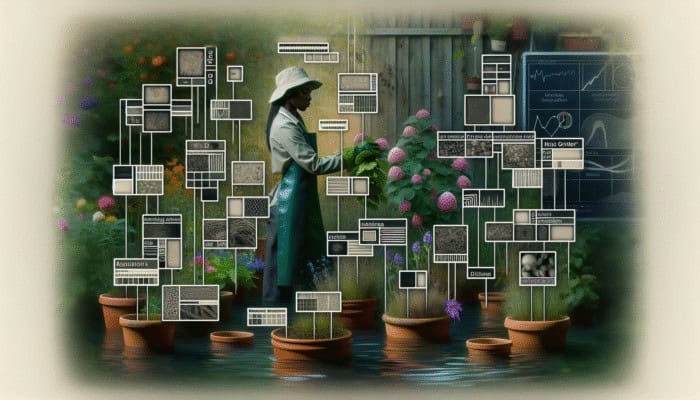Boosting Fertility: The Benefits of Acupuncture
Infertility is only one of many medical conditions that have found relief via the thousands of years of use of acupuncture, a form of traditional Chinese medicine. This method entails inserting tiny needles into specific places on the body to improve energy flow and speed up the healing process. Acupuncture has become more acknowledged as a supplementary treatment for individuals and couples experiencing difficulties with fertility.
Scientific research has shown that acupuncture can control hormone levels, alleviate stress, promote blood circulation to reproductive organs, and improve fertility in general. The key concept behind using acupuncture in fertility treatment is its unique ability to restore equilibrium to the body's energy, known as qi, which is believed to influence the reproductive system. This focus on restoring balance offers hope and optimism to individuals and couples struggling with fertility, as it addresses potential imbalances that could impact the ability to conceive.
Moreover, acupuncture is believed to trigger the secretion of neurotransmitters and hormones, which may positively affect reproductive function. The research on the efficacy of acupuncture in fertility treatment has expanded, leading to its rising appeal as a natural choice for supporting conception. Individuals and couples commonly use acupuncture as a supplemental method to conventional medical interventions in their fertility treatment regimens.
Acupuncture is being extensively studied and applied in reproductive health, driven by the growing interest in holistic and natural fertility therapies. As indicated by this prevailing pattern, the audience experiences a sense of inclusion in a progressive movement towards adopting more organic and comprehensive methods of conception.
Main Pointers
- Acupuncture has been linked to improved fertility outcomes in both men and women.
- Acupuncture can regulate hormones and improve fertility by balancing the body's energy flow.
- Acupuncture plays a role in reducing stress and enhancing fertility by promoting relaxation and reducing anxiety.
- Acupuncture can complement assisted reproductive techniques by improving their effectiveness.
- Acupuncture can improve blood flow to the reproductive organs, enhancing fertility.
- Acupuncture can also improve sperm quality and count in men.
- Finding a qualified acupuncturist with experience in fertility support is important for the best results.
 How Acupuncture Can Regulate Hormones and Improve Fertility
How Acupuncture Can Regulate Hormones and Improve Fertility
Hormonal Balance and Regulation
Acupuncture is believed to impact hormone levels, which are crucial in fertility directly. By targeting specific acupuncture points, the treatment can help regulate the endocrine system and promote hormonal balance. This is particularly important for women who may be experiencing irregular menstrual cycles, hormonal imbalances, or conditions such as polycystic ovary syndrome (PCOS) that can affect fertility.
Stimulating Hormone Release and Improving Blood Flow
Acupuncture can help stimulate the release of certain hormones, such as follicle-stimulating hormone (FSH) and luteinizing hormone (LH), essential for ovulation and the menstrual cycle. In addition to regulating hormones, acupuncture can improve blood flow to the reproductive organs, including the ovaries and uterus. This increased blood flow can help nourish the eggs and uterine lining, creating a more optimal environment for conception and implantation.
Enhancing Fertility and Supporting Pregnancy
By enhancing blood flow to the reproductive organs, acupuncture can also help support the development of healthy follicles and improve the quality of the uterine lining, essential for successful conception and pregnancy. Overall, acupuncture's ability to regulate hormones and improve blood flow can have a significant impact on fertility and increase the likelihood of successful conception.
The Role of Acupuncture in Reducing Stress and Enhancing Fertility
Stress is recognised to exert an adverse influence on fertility by disturbing hormone levels, impeding ovulation, and diminishing sperm quality. For people and couples facing infertility, effectively managing stress is a crucial component of their journey to conceive. Research has demonstrated the efficacy of acupuncture in diminishing stress and enhancing relaxation, potentially benefiting fertility.
The therapy aims to alleviate stress and anxiety by focusing on specific acupuncture points, which in turn help to soothe the nervous system, lower cortisol levels, and enhance overall well-being. Aside from its physiological impacts, acupuncture also offers patients a designated period for self-care and relaxation. Acupuncture is often regarded as a soothing and refreshing practice that helps individuals alleviate stress and anxiety while fostering a state of equilibrium and serenity in the body.
Acupuncture can facilitate conception and pregnancy by alleviating stress and inducing relaxation, fostering a conducive environment. Consequently, numerous people and couples have resorted to acupuncture as a holistic method to regulate stress and improve their fertility process.
Acupuncture as a Complementary Treatment for Assisted Reproductive Techniques
Acupuncture is considered a beneficial complementary treatment for patients undergoing assisted reproductive methods like in vitro fertilisation (IVF) or intrauterine insemination (IUI). Studies have demonstrated that acupuncture can enhance the efficacy of these operations by enhancing uterine blood circulation, alleviating stress, and fostering general reproductive well-being. Several fertility clinics now incorporate acupuncture into their IVF or IUI treatment protocols, Recognising the capacity of these treatments to enhance success rates.
Acupuncture is commonly employed alongside assisted reproductive procedures to prime the body for conception and facilitate the successful implantation of embryos. By addressing issues such as hormone balance, stress reduction, and enhanced blood flow, acupuncture can enhance the chances of successful implantation and pregnancy. In addition, acupuncture helps mitigate specific adverse effects linked to reproductive therapies, including bloating, nausea, and emotional distress.
Consequently, some individuals undergoing assisted reproductive procedures have resorted to acupuncture as a means to bolster their overall fertility journey and enhance their likelihood of achieving success.
 The Benefits of Acupuncture in Improving Blood Flow to the Reproductive Organs
The Benefits of Acupuncture in Improving Blood Flow to the Reproductive Organs
Optimal fertility relies on maintaining healthy blood flow to the reproductive organs. Optimal circulation is crucial for the ovaries, uterus, and fallopian tubes to obtain vital nutrients and oxygen and eliminate waste. Acupuncture has demonstrated the ability to enhance blood flow to the reproductive organs by widening blood vessels and stimulating circulation.
Enhanced blood circulation can facilitate the provision of nutrients to the eggs, promote the growth of robust follicles, and establish a more favourable setting for the implantation process. Acupuncture can also benefit the reproductive system, including improved circulation, reduced inflammation, and better tissue regeneration. Endometriosis and uterine fibroids are medical conditions that can significantly impact a person's fertility.
When acupuncture is done correctly, the chances of having a healthy pregnancy increase, which improves reproductive health. By targeting and resolving underlying disorders that affect blood circulation, acupuncture has proven to be beneficial for many people in improving their fertility, making it a valuable option for those struggling to conceive.
Acupuncture's Role in Improving Sperm Quality and Count
The Importance of Male Fertility Support
While much of the focus on fertility support is often directed towards women, it's important to recognize that male-factor infertility is also a common issue. Acupuncture has been shown to have positive effects on sperm quality and count, making it a valuable tool for men seeking to improve their fertility.
How Acupuncture Improves Sperm Health
By targeting specific acupuncture points related to reproductive health, the treatment can help regulate hormone levels, reduce inflammation, and promote overall sperm health. Research has shown that acupuncture can help improve sperm quality by increasing sperm motility (movement) and reducing DNA damage. Additionally, acupuncture has been shown to increase sperm count and improve overall semen parameters.
A Natural Solution for Male Factor Infertility
By addressing these factors that contribute to male infertility, acupuncture can help support men in their efforts to conceive. Many couples have turned to acupuncture as a natural way to address male factor infertility and improve their chances of successful conception.
 The Importance of Finding a Qualified Acupuncturist for Fertility Support
The Importance of Finding a Qualified Acupuncturist for Fertility Support
When searching for acupuncture to aid in fertility, it is crucial to locate a proficient acupuncturist who possesses expertise in addressing reproductive health concerns. Choosing an adept acupuncturist empowers you with the control and confidence that they will possess expertise in the precise acupuncture points associated with conception and be capable of customising treatments to cater to individual requirements. In addition, they must possess knowledge of Western reproductive medicine to offer comprehensive care that supports other fertility treatments.
Locating an acupuncturist with a valid license and certification from a respectable organisation is crucial. This guarantees they have undergone comprehensive training and adhere to rigorous practice norms. Several fertility clinics now include acupuncture services as a component of their holistic care for individuals undergoing assisted reproductive procedures.
Collaborating with an acupuncturist who is knowledgeable about these techniques can offer significant assistance during the process of trying to conceive. Ultimately, acupuncture has become a helpful resource for individuals and couples who are looking for natural assistance with fertility. The enticing qualities of this alternative for individuals facing infertility include its capacity to control hormones, promote blood circulation, alleviate stress, and improve overall reproductive health.
Acupuncture, whether used alone or in combination with assisted reproductive procedures, provides a comprehensive approach to supporting fertility by addressing both physical and emotional well-being. This emphasis on emotional well-being is a testament to the understanding and care that a proficient acupuncturist with expertise in reproductive health can provide, helping to optimise the potential advantages of this ancient technique in promoting fertility.
FAQs
What is acupuncture?
Acupuncture is a traditional Chinese medicine practice that involves inserting thin needles into specific points on the body to stimulate energy flow and promote healing.
How does acupuncture help fertility?
Acupuncture may help fertility by reducing stress, improving blood flow to the reproductive organs, regulating hormone levels, and balancing the body's energy.
Is there scientific evidence to support acupuncture for fertility?
While more research is needed, some studies have shown that acupuncture may improve fertility outcomes by increasing the success rates of in vitro fertilization (IVF) and addressing underlying issues such as polycystic ovary syndrome (PCOS) and endometriosis.
Is acupuncture safe for fertility treatment?
When performed by a qualified and licensed practitioner, acupuncture is generally considered safe for fertility treatment. Discussing any concerns with a healthcare provider before starting acupuncture is important.
How often should acupuncture be done for fertility?
The frequency of acupuncture sessions for fertility may vary depending on individual needs and treatment plans. Some practitioners recommend weekly sessions leading up to fertility treatments such as IVF, while others may suggest a different schedule based on the specific situation.
Brought To You By:
References
Can acupuncture improve fertility? https://www.medicalnewstoday.com/articles/323580
Acupuncture for Fertility: Can It Help You Get Pregnant? https://health.clevelandclinic.org/acupuncture-for-fertility


























34 Comments
This post brings to light such an important aspect of holistic health that often gets overshadowed by more conventional treatments. Acupuncture has indeed carved out its niche not just in terms of fertility, but as a complementary approach across various health realms. Personally, I’ve often found that the conversation around fertility treatments tends to lean heavily toward the mechanical and clinical side, leaving little room for emotional well-being and energetic balance.
Your insights into the benefits of acupuncture for fertility are fascinating, particularly how this ancient practice aligns with contemporary scientific understandings of stress and hormonal balance. I wonder, however, if there’s enough acknowledgment of the psychological dimensions of infertility in these discussions.
This blog post sheds light on a topic that deeply resonates with so many individuals and couples navigating the challenging journey of infertility. The idea that acupuncture can play a role in fertility treatment is indeed intriguing and adds another layer to the holistic approaches that many are seeking today.
It’s great to hear that this topic resonates with you! The intersection of acupuncture and fertility often surprises people. Many don’t realize that acupuncture isn’t just about pain relief; it’s about creating balance in the body, which can be so helpful during the emotional and physical challenges of infertility.
Thank you for your thoughtful comment! If you’re interested in exploring how acupuncture can complement your fertility journey, feel free to check out this resource for more insights.
https://mcrtherapies.co.uk/ig
Your exploration of acupuncture’s role in enhancing fertility is indeed thought-provoking. As someone who has experienced the emotional rollercoaster of infertility, I particularly appreciate how you highlight the holistic nature of acupuncture, addressing not just the physical but also the emotional aspects of this journey.
I appreciate your perspective on this topic. The emotional journey of infertility can be incredibly isolating, and it’s often easy for medical discussions to overlook the psychological toll it takes. When exploring acupuncture’s potential role, I found it fascinating how this practice doesn’t just target the physical symptoms but also creates a supportive space to process emotions and stress.
Thank you for your kind words! If you’re interested in learning more about how acupuncture can support your fertility journey, I invite you to explore additional resources here.
https://mcrtherapies.co.uk/ig
I really appreciate your insights on the emotional side of infertility; it’s such a complex journey. It’s easy to focus solely on the physical aspects of treatments like acupuncture, but the emotional toll can be just as significant. I’ve read about how traditional Eastern practices view health much more holistically, which resonates with many people navigating the ups and downs of fertility challenges.
Your exploration of acupuncture as a supplementary treatment for fertility brings up several intriguing points that deserve a closer examination. I appreciate how you highlight the historical context of acupuncture within traditional Chinese medicine, as it reminds us that many modern health practices have roots in ancient systems of knowledge. This perspective can sometimes encourage a more holistic approach to health, moving beyond a purely pharmaceutical viewpoint.
You’ve touched on an important aspect of how we view health and wellness today. The historical context of acupuncture really does remind us that many modern treatments can feel disconnected from ancient practices that approached health in a more integrated way. It’s fascinating to think about how ancient systems of knowledge, like traditional Chinese medicine, placed such emphasis on balance and harmony within the body.
You’ve touched on an important aspect of how we view health and wellness today. It does open up a dialogue about how our understanding of the body has evolved. I find it intriguing that modern medicine, despite its many advancements, often seems to prioritize the symptom over the whole person.
I found your exploration of acupuncture in relation to fertility both enlightening and relatable. It’s fascinating how traditional practices like acupuncture are gaining recognition alongside modern medicine, especially given the stress and emotional turmoil that often accompany fertility challenges. Personally, I’ve seen friends who turned to acupuncture as a complementary therapy during their fertility treatments; they reported not only a sense of physical relief but also a significant reduction in stress, which I imagine plays a crucial role in overall health and wellness.
It’s refreshing to hear your perspective on acupuncture and its role in fertility. You’re right about the recognition these traditional practices are gaining; it seems more people are beginning to appreciate how they can fit into the larger picture of health. The emotional and physical aspects of fertility struggles can feel overwhelming, so it’s interesting to see how therapies like acupuncture can help create a balance.
This is such an insightful exploration of acupuncture’s role in supporting fertility! I found your emphasis on the balance of energy, or qi, particularly compelling. It resonates with the idea that our physical and emotional states are often intertwined. My partner and I went through our fertility journey a few years back, and I remember how important it was for both of us to find a holistic approach that encompassed mental well-being alongside medical treatments.
Your exploration of acupuncture’s role in enhancing fertility is both enlightening and timely. I appreciate how you highlighted its ability to balance qi and the physiological benefits it offers, like hormone regulation and improved circulation. It’s fascinating to think about how ancient practices can weave into modern health discussions, blending tradition with contemporary science.
It’s great to hear your thoughts on the role of acupuncture in enhancing fertility. The idea of balancing qi really does resonate, doesn’t it? When you think about how many modern health challenges stem from stress and imbalance, it becomes clearer why practices like acupuncture hold value. The way it integrates with our body’s natural rhythms offers a refreshing perspective in today’s fast-paced world.
I appreciate your reflections on acupuncture and its connection to fertility. The concept of balancing qi really does resonate, especially considering how disconnected many of us feel from our bodies in this modern age. The daily grind can create such stress that it’s easy to overlook the importance of that natural balance.
I found an interesting piece on how TMS and acupuncture can complement each other, diving deeper into that harmonious balance we often seek in our well-being.
‘Transcranial Magnetic Stimulation (TMS) with Acupuncture’
https://mcrtherapies.co.uk/transcranial-magnetic-stimulation-tms-with-acupuncture/.
I really resonate with what you mentioned about the blend of ancient practices and contemporary science. It’s interesting to see how acupuncture, a practice that’s been around for thousands of years, is finding a place in our modern understanding of health, especially regarding something as personal as fertility.
Your insights on acupuncture’s role in fertility made me think about how similar holistic approaches can help with other issues, like sciatica pain; the blend of traditional methods and modern techniques can truly illuminate our understanding of discomfort relief.
‘Effective Sciatica Pain Treatment: Alleviate Discomfort Today’
https://mcrtherapies.co.uk/effective-sciatica-pain-treatment-alleviate-discomfort-today/.
It’s fascinating how acupuncture has managed to sidle up to modern medicine like an old friend crashing a hip party. Who would’ve thought that those tiny needles could revive such ancient wisdom in the glitzy world of contemporary health? It’s almost like acupuncture has pulled a “Look who’s back!” move on us, showing up just when we thought we were too cool for school.
I really appreciate your insights on acupuncture and its role in enhancing fertility. It’s curious how practices that have been around for centuries can still find relevance in our modern understanding of health. The idea of balancing qi speaks to a more holistic approach, something that often feels missing in conventional medicine.
You raise an interesting point about the relevance of long-standing practices like acupuncture in today’s health landscape. It’s true that many people are drawn to that holistic perspective, especially when conventional routes feel limited or lacking. Balancing qi emphasizes something crucial: looking at the whole person rather than just isolated symptoms.
Thank you for your thoughtful comment! If you’re interested in exploring more about the holistic benefits of acupuncture for fertility, I invite you to check out this resource that delves deeper into the topic.
https://mcrtherapies.co.uk/ezi
Your exploration of acupuncture as a means to address fertility issues taps into an interesting intersection of traditional practices and modern healthcare. It’s fascinating how ancient wisdom continues to find relevance in today’s medical landscape. However, while acupuncture might show promise, it’s essential to approach its use in fertility treatment with a careful and critical perspective.
You bring up a really valid point about the need for a careful and critical perspective when it comes to acupuncture and fertility treatment. It’s definitely a space where ancient practices meet modern science, and that can be a tricky balance to strike.
I appreciate your thoughts on this. It really is fascinating how ancient practices like acupuncture are being evaluated through the lens of modern science, especially in areas as sensitive as fertility treatment. It raises so many questions about how we define health and wellness.
It’s interesting, isn’t it? The intersection of ancient practices and modern science really opens up a dialogue about the different ways we perceive health and wellness. When I first learned about how acupuncture is being integrated into fertility treatments, it made me think about the broader question of what ‘healthcare’ really means. In many cultures, health has historically encompassed a holistic view—mental, physical, and emotional well-being—rather than just the absence of disease.
You’ve touched on something really profound with the idea that health encompasses a holistic view. It’s fascinating how societies around the world have recognized this for centuries, while our modern healthcare systems often seem to narrow the focus to just physical symptoms. The integration of acupuncture into fertility treatments is a perfect example of how traditional practices are being revisited through a contemporary lens. It’s not just about addressing one area of health; it acknowledges the interconnectedness of mind, body, and spirit.
I recently came across some insights on frozen shoulder that really delve into how understanding the causes can lead to more effective treatment options, offering a holistic perspective on recovery that aligns with a broader view of health.
‘Frozen Shoulder: Causes and Effective Treatment Options’
https://mcrtherapies.co.uk/frozen-shoulder-causes-and-effective-treatment-options/.
You bring up an important point about the holistic view of health that many cultures have embraced. It’s fascinating how ancient practices like acupuncture resonate with modern medicine, especially in areas like fertility treatments. It seems that a growing number of people are beginning to recognize health as a multi-faceted concept, where mental, emotional, and physical aspects all play a role in overall well-being.
It’s great to hear your thoughts on the intersection of traditional practices like acupuncture and modern healthcare. You’re right to point out the importance of taking a careful and critical look at its role in fertility treatment. While acupuncture has been used for centuries and its positive effects on various health issues are well-documented, it’s important to remember that not all experiences or outcomes will be the same for everyone.
“To dive deeper into the potential benefits of acupuncture for fertility, check out this insightful resource that blends tradition with modern evidence.”
https://mcrtherapies.co.uk/fb
Your exploration of acupuncture’s role in addressing fertility challenges offers a vital perspective that is often overlooked in more conventional discussions about reproductive health. As someone who experienced the emotional rollercoaster of infertility, I found that integrating holistic practices, including acupuncture, made a remarkable difference in my journey.
Your exploration of acupuncture for fertility offers a fascinating lens on how traditional practices can intersect with modern health challenges. However, it’s important to consider the varying degrees of scientific backing for acupuncture across different fertility issues. While many women report positive experiences, rigorous studies often yield mixed results on its effectiveness when used alongside conventional treatments like IVF.
You bring up a valid point about the variability in scientific backing for acupuncture, particularly when discussing fertility issues. It’s true that while many women share positive anecdotes about their experiences with acupuncture, the scientific community often grapples with mixed findings. The nuance here is crucial, as individual response to acupuncture can differ significantly.
“To dive deeper into the nuances of acupuncture and its role in fertility, check out this insightful resource that sheds light on both traditional practices and modern scientific perspectives.”
https://mcrtherapies.co.uk/yt
I find the connection between acupuncture and fertility fascinating! After struggling with fertility issues myself, I turned to holistic alternatives, including acupuncture, and experienced not just physical benefits but also a significant reduction in stress. The idea of restoring balance, or qi, resonates deeply—it’s not just about the body, but the mind too.
Your journey into holistic alternatives like acupuncture is truly inspiring. It’s not uncommon for people to feel overwhelmed when facing fertility challenges, and exploring different paths can feel like a breath of fresh air. The connection between the body and mind is often overlooked, but you’ve hit the nail on the head by recognizing how closely they interact—especially when it comes to something as significant as fertility.
I find the insights on acupuncture and its role in enhancing fertility truly fascinating. It’s interesting to consider how a practice rooted in ancient wisdom can offer modern individuals and couples a holistic approach to what can often be a stressful journey. The idea of restoring balance to one’s energy, or qi, speaks to a broader understanding of health that integrates both body and mind.
This is fascinating! I never thought I’d be considering acupuncture for my fertility struggles instead of just more kale smoothies and yoga classes. It’s like leveling up in the quest for parenthood – who knew tiny needles could be the hidden cheat code?